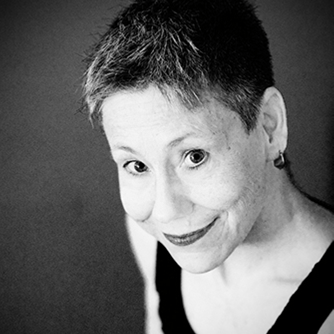In October 2015, Indonesia made its appearance as the guest of honor at the Frankfurt Book Fair—the first country from Southeast Asia to be so honored. Words Without Borders celebrated with our August 2015 issue, which offered work by nine poets and fiction writers. Now, three and half years later, Indonesia heads to London to appear in the same role at the London Book Fair, and we’re marking the occasion by presenting four authors, two of whom will participate in the fair.
The authors here represent a range of genres and topics in settings extending from distant planets to the very center of the earth. Novelist Clara Ng, one of the twelve authors attending the fair, contributes a moving intergalactic love story. Cen is from a “blue planet” not unlike our own, with deserts, snow, and fireflies; Tiansun hails from “the silver planet,” where the frequent meteor showers delight Cen. The lovers are separated not by their differences, but by the cruel, inexorable force of time. On Tiansun’s planet, time is measured in hon, and he has relatives who lived to ten thousand hon; but Cen’s life expectancy is a fraction of Tiansun’s. “If I can only live with you for one hon,” Tiansun declares, “then I will love you for one hon.” Now, at two thousand hon and counting, he mourns his lost love; but he has not been left totally alone.
In “The Prayer of the Flame that Sparked the Forest Fire,” poet M Aan Mansyur speaks of devastation that leads to rebirth. “Permit me / to turn to ash the dry leaves at the feet / of trees so that they might one day / become a greater forest,” he asks, concluding, simply, “Make me free of pride.”
Essayist Nirwan Dewanto, who’ll also be at London, trained as a geologist before moving into literature and cultural commentary. His “Geology” maps the differences between that discipline and geography: “If the nature of geography is endless horizontal movement, geology is the effort to move downward, to uncover the strata that form the topography of today. Of course, this cannot be done in any absolute way.” As he moves through this terrain, he notes, “We’ll never be able to get to the interior of the earth except through interpretation.”
And short-story writer Raudal Tanjung Banua sends an author on a unique assignment. A biographer-for-hire is summoned by a previous subject, a successful cane merchant. He assumes the businessman wants to update the earlier volume, but instead the man asks him to write the life story of a unique client: a newborn. Puzzled, he responds, “What could a baby have to show for its life?” A longer conversation with the merchant clarifies not only his assignment but his own life story, which functions as an allegory of the nation’s history.
This selection suggests the great variety of Indonesian writing and serves as a taste of the country’s vibrant literary culture. We’re delighted to share in the celebrations, and to promote this country’s literature this month and beyond.
© 2019 by Susan Harris. All rights reserved.










